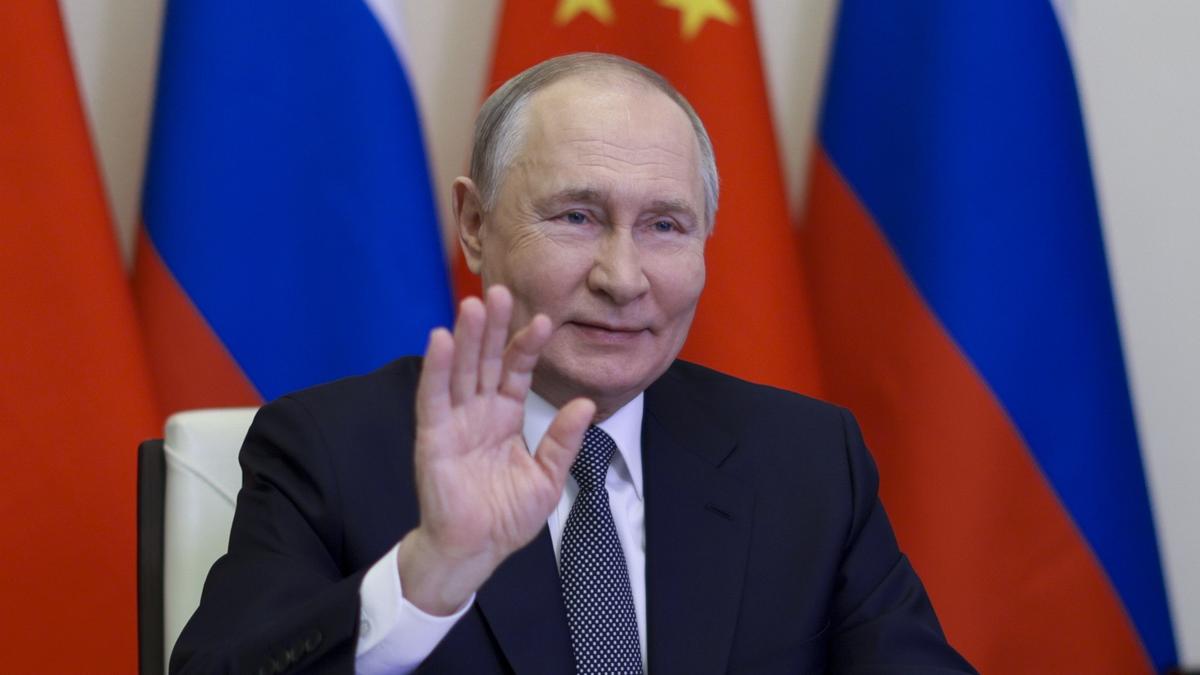Putin and Xi Jinping's Show of Unity Amidst Trump's Inauguration: A New Era in Global Politics?
The inauguration of Donald Trump as the 47th U.S. President sent shockwaves across the globe, prompting immediate reactions from world leaders. Among the most notable responses was the video call between Russian President Vladimir Putin and Chinese President Xi Jinping, a conversation emphasizing their strong and unwavering bilateral ties just a day after Trump's swearing-in. This surprising display of unity raises crucial questions about the evolving dynamics of global power and the future of international relations in the Trump era. Could this be the beginning of a new geopolitical alliance, shifting the global balance of power, or simply a calculated response to Trump’s policies?
The Putin-Xi Summit: A Strategic Partnership Deepens
The over one-and-a-half-hour video conference between Putin and Xi highlighted their close personal relationship, further cemented by Russia's 2022 military actions in Ukraine. This partnership goes beyond mere political agreement; China has emerged as a critical economic partner for Russia, providing essential technologies and serving as a major consumer of Russian oil and gas—a lifeline for the Russian economy amid Western sanctions. The leaders publicly emphasized their shared commitment to a multipolar world order, openly challenging the traditional global dominance exerted by the West. This statement signifies more than a political strategy; it’s a declaration of economic and geopolitical independence, signaling to other countries a potentially more attractive partnership against a perceived US-dominated global landscape.
Mutual Support and Economic Interdependence: The Foundation of the Alliance
Both leaders affirmed their mutual support and commitment to deepening strategic cooperation, ensuring their national interests are preserved within the international arena. The robust economic ties between Russia and China, fostered by the sanctions on Moscow, have become an undeniable cornerstone of their bilateral relationship, providing both mutual benefits and economic security amidst geopolitical uncertainty. This partnership underscores the potential for the creation of a multipolar global economy that can mitigate Western influence, impacting global trade routes and financial transactions. The two countries may collaborate on infrastructure projects that directly challenge the West's dominant position in global supply chains and infrastructure investments.
Navigating the Trump Administration: A Cautious Approach
While neither Putin nor Xi explicitly mentioned Trump during their publicized conversation, the Kremlin confirmed the call touched upon potential interactions with the new U.S. administration. Both leaders indicated a willingness to engage with Washington based on mutual benefit and respect, but only if the Trump administration extends a similar overture. This strategic pause indicates a degree of caution, as the unpredictable nature of the Trump administration requires careful assessment before initiating any direct contact.
Trump's Statements and Russia's Measured Response
Trump's pronouncements regarding Ukraine and the possibility of a peace deal with Russia are a central aspect of this diplomatic ballet. While Trump expressed optimism and willingness to mediate a resolution in Ukraine, Russia remains circumspect, urging for specific, concrete proposals rather than mere gestures of diplomatic goodwill. Putin's emphasis on “removing the root causes of the crisis” emphasizes Moscow's desire for negotiations that would address its security concerns.
A New World Order? Realigning Geopolitical Dynamics
The increasing alignment between Russia and China marks a significant shift in the global political landscape. This strategic partnership directly challenges the traditional unipolar world order, leading to significant alterations in power dynamics. The willingness of these two powerful nations to openly cooperate and defy traditional alliances demonstrates a new pattern of geopolitical engagement and presents significant potential implications for other countries and future international relationships.
Implications and the Uncertain Future of Global Order
The Putin-Xi alliance potentially foreshadows a multipolar world, shifting the balance of global power. The evolving economic collaboration between China and Russia presents alternative economic and geopolitical routes for other countries seeking independence from traditional Western power structures, and could reshape international collaborations, trading agreements, and economic interdependence.
Take Away Points
- The Putin-Xi meeting underscores the deepening strategic partnership between Russia and China amidst the changing geopolitical landscape following Trump's inauguration.
- Their emphasis on a multipolar world order signifies a challenge to the traditional global dominance of the West.
- Both leaders expressed readiness to engage with the Trump administration based on mutual respect and benefit, but only if approached properly by the U.S.
- The strategic collaboration between Russia and China has major implications for the future of global politics and international relations, creating new economic and geopolitical realities.




